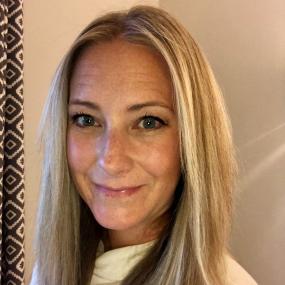Striking the Balance Annual Meeting – Diversity and Inclusion

Dr Sarah Marsh is deputy Chair of the Women in Intensive Care Medicine Sub-Committee and the Education sub-committees of the FICM. She is also course Programme Director for the FICM’s exam preparatory course.
The Striking the Balance annual meeting is organised by the Women in ICM committee and aims to champion those none-clinical skills relating to the human interactions that we use every day. Arguably these skills are more important and used more frequently than some of the more clinically based technical skills that we tend to focus on for our continuing professional development, as they form the basis for our interactions as a clinician, as a team member and as a human. Previous topics from the meetings have included psychological safety, implicit bias, succeeding as an introvert and managing difficult conversations. These type of subjects fill in a necessary gap in our personal growth and hopefully allow us to increase our understanding of both ourselves and the other team members around us.
This year’s Striking the Balance meeting is centred around diversity - celebrating the contribution that it makes and highlighting how important it is for inclusion, for belonging and ultimately success.
The definition of diversity is “the condition or fact of being different or varied”, or put simply variety. And to come up with a workplace diversity definition, we have to think about all the different characteristics that employees could have. Diversity is any dimension that can be used to differentiate groups and people from one another. These differences are described in the Equality Act of 2010 as “Protected Characteristics” and include ethnicity, age, gender, sexual orientation and disability. Some of these characteristics are visible and some are invisible, and all are just as important as the other.
Gender has been a topic that has been focused on in previous STB meetings - this year we wanted to explore more around the barriers within medicine for the other protected characteristics so that we can educate ourselves, challenge our own behaviours and improve our workforce for all #everyoneICM.
Policies on diversity are almost universal in organisational settings now. Finding a company or institution without a written statement outlining their commitment to diversity is now rare, and billions of dollars are used each year in the effort to increase the representation of minority groups including women and ethnic minorities in organisations worldwide.
But why is diversity thought to be so important? Success through increasing diversity has been shown in both a business and healthcare setting; workplace diversity is one of the most important predictors of a business’ sales revenue, their customer numbers and profitability, and in healthcare, diversity has been shown to increase the accuracy of clinical decision making, higher patient satisfaction and improved health care outcomes.
It does this through many ways including improved recruitment to diverse organisations, improved morale in staff and improved retention of the workforce. With increased diversity, the subsequent feeling of inclusion and community can improve individual motivation and morale, as well as allowing a range of perspectives that can lead to more creative problems solving.
Healthcare staff should also be as diverse as the patient population that they are treating so that the patients can have staff who they can identify with, communicate with, and have their individual needs served and addressed.
And while diversity is important, diversity without inclusion is ineffective. Not only do healthcare teams need to represent a variety of backgrounds, but each member also needs to be given a platform and a voice. Inclusion is a measure of the culture that enables diversity to thrive. People need to feel accepted, included and valued by others to perform at their best. Without diversity and inclusion, our healthcare systems may not be as effective across many different levels. We must all continue to look after each other and foster a culture of inclusion and ultimately belonging.
Our speakers this year will cover many of the protected characteristics including age and the intensivist, racism in medicine, disability, and LGBTQ+ with relation to critical care as well as other important areas for us to consider such as neurodiversity and socio-economic background and access to medicine. We hope this novel study day will promote learning, conversation and change, and we look forward to hosting you on the 16th October.
To move forward we must educate ourselves, address our own implicit bias (that we may be unaware of) and recognise our privilege in having the platform that we do. We must then use that platform for allyship to ensure that ICM can be a place that welcomes all, to promote diversity and to build on the success that we have cultivated thus far.
Related Content
Written by Dr Laura Coleman
Written by Dr Alexandra Kendall-Smith
Written by Dr Emily Reynolds

